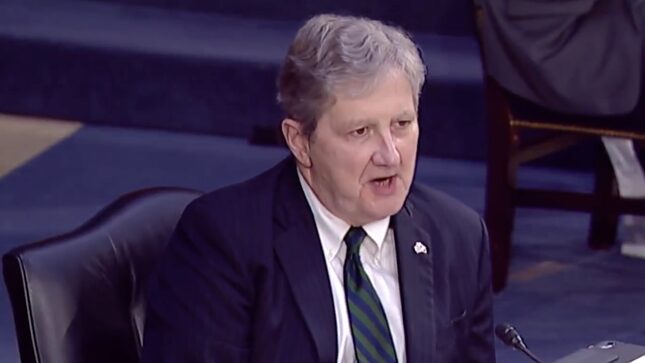The Senator, the 'Freak Show,' and a Referendum on 'Good' Womanhood
Politics

Just a couple minutes into his opening statements, Sen. John Kennedy landed on a subtle yet unmistakable frame for Amy Coney Barrett’s Supreme Court confirmation hearings: “good” womanhood.
After some friendly remarks while oh-so-casually leaning back in his chair, Kennedy got right down to business, tossing his eyeglasses on the table. “Now look, judge, I’m not naive. I understand this thing can turn sour real fast,” he said, addressing Barrett. “We all watched the hearings for Justice Kavanaugh,” he continued, seeming calm. Then in a jarring outburst, he yelled: “It was a freak show!” He spit the final words: FREAK SHOW. “It looked like the… the… cantina bar scene outta Star Wars,” he added, haltingly. Then he went on to just totally sympathize with Barrett over the “hurt” of being “called a racist” and a “white colonialist.”
-

-

-

-

-

-

-

-

-

-

-

-

-

-

-

-

-

-

-

-

-

-

-

-

-

-

-

-

-

-

-

-

-

-

-

-

-

-

-

-








































